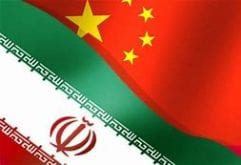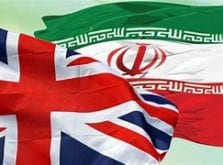Iranwire – Just when it seemed talks in Vienna on something approximating the JCPOA were close to concluding, Russia turned the tables. On Saturday, March 5, Foreign Minister Sergei Lavrov said the wide-ranging sanctions now imposed on Russia for its invasion of Ukraine posed “a problem” for the deal.
Lavrov said Russia wanted “written guarantees” from the US that its trade, investment and military-technical cooperation with Iran would not be hindered in any way by the sanctions.
“We want an answer,” he said, “a very clear answer. We need a guarantee that these sanctions will not in any way touch the regime of trade-economic and investment relations laid down in the Joint Comprehensive Plan of Action.”
Under the current terms of the would-be deal, Lavrov said, Russia and China would be allowed to help Iran develop its civilian nuclear program in accordance with non-proliferation rules. As of last week, Russia has abruptly become the most-sanctioned country in the world, potentially scuppering the financial benefits Moscow hoped to reap from a resumption of trade in Iran.
After Donald Trump pulled the US from the nuclear deal in 2018, reimposing banking and oil export sanctions on the Islamic Republic, Ali Akbar Velayati, Khamenei’s senior adviser on international affairs, met with President Vladimir Putin in Moscow.
Following the meeting, Velayati announced that Russia had committed to buying oil from Iran and would sell it on international markets. But then-Foreign Minister Mohammad Javad Zarif later said Russia had called off the deal – precisely because it had been publicly announced.
Russia’s newly-squeezed position means its negotiators are desperate to leverage the JCPOA as a means of generating some income. US Secretary of State Antony Blinken, however, has dismissed the demands: post-Ukraine sanctions and the JCPOA, he told CBS, were “just are not in any way linked together, so I think that’s irrelevant”.
Why Does Russia Play Such an Important Role in the Nuclear Talks?
The only reason Russia is a party to the JCPOA at all is because Iran’s nuclear case had been referred to the UN Security Council, of which it is a permanent member, in 2006. But ever since talks to salvage the deal began, Russia has played a disproportionate role. Ayatollah Khamenei has forbidden Iranian representatives in Vienna from directly negotiating with Americans. The Russian team has rushed to fill that void, establishing itself as de facto mediator between the two sides.
Despite Lavrov’s intervention, however, the JCPOA talks continue. If a deal is struck, Russia will be expected to cooperate in removing enriched uranium from Iran. If it does not do so, other parties will find a replacement state to do Russia’s job; it might take some time, but is far from impossible.
Ultimately, Russia cannot prevent the US from lifting sanctions on Iran if it assesses compliance has been assured by the Islamic Republic. At best, Lavrov’s pronouncement was a stalling tactic: one Tehran has sought not to outwardly take a side on. In a carefully-worded official statement following a call with Lavrov, Foreign Minister Hossein Amir-Abdollahian said: “We are against war and imposition of sanctions, and it is clear that cooperation between the Islamic Republic of Iran and any country, including Russia, should not be affected by the atmosphere of sanctions.”
 Shabtabnews In this dark night, I have lost my way – Arise from a corner, oh you the star of guidance.
Shabtabnews In this dark night, I have lost my way – Arise from a corner, oh you the star of guidance.



